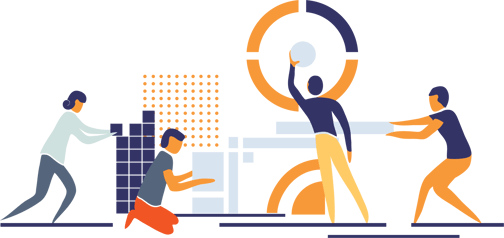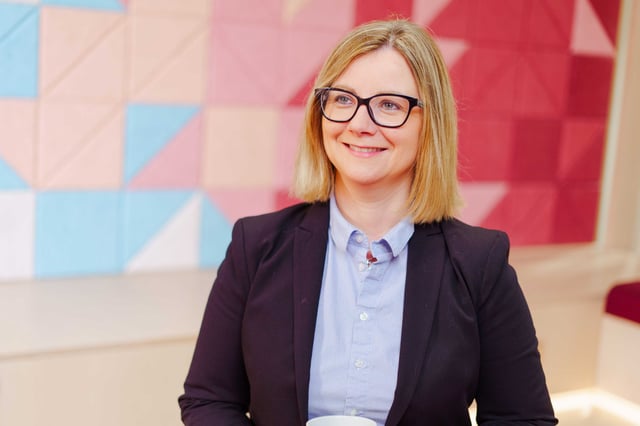Culture Assessment & Workshops in Team Building
When we deal with team building, Culture Assessment & Workshops are paramount. Cultivating a positive team culture is not easy, it requires intentional efforts. When done correctly Culture Assessment & Workshops can create cohesive, engaged, and high-performing teams.
The Essence of Culture Assessment
Culture assessment is a proactive process of evaluating the existing values, behaviours, and dynamics within a team or organisation. It serves as a diagnostic tool, providing insights into the current state of the team culture while highlighting areas that require attention.
Workshops as Catalysts for Change
Workshops, when strategically designed and executed, act as catalysts for cultural transformation. They provide a structured environment for team members to engage in collaborative activities, discussions, and exercises aimed at enhancing teamwork, communication, and overall team dynamics.
The Impact on Team Building and Beyond
The integration of culture assessment & workshops into team building initiatives yields multifaceted benefits:
- Improved Team Morale and Engagement: A positive team culture boosts morale and keeps team members engaged.
- Enhanced Problem-Solving Abilities: A culture of collaboration nurtured through workshops leads to improved problem-solving capabilities.
- Increased Employee Retention: When individuals feel connected to the team culture, it contributes to higher levels of employee retention.
Conducting a Culture Workshop
In the landscape of team building, the role of a Culture Workshop can unlock the potential for a positive and cohesive team culture. Our team at Nathan Trust can help you with understanding, planning, and executing a Culture Workshop that not only fosters team unity but also contributes to organisational success.
Understanding the Essence of a Culture Workshop
A Culture Workshop is a structured and interactive session designed to explore, evaluate, and shape the values, behaviors, and dynamics within a team. It serves as a proactive approach to cultivating a positive team culture by engaging team members in activities and discussions that promote understanding, collaboration, and alignment.
Conducting a Culture Workshop in team building is not just a task; it's an opportunity to shape the foundation of a positive and high-performing team culture. As organisations recognise the pivotal role of intentional cultural cultivation, those who adeptly plan and execute such workshops will find themselves at the forefront of building resilient and cohesive teams poised for success.
Culture Change/Change Management Workshops
The Importance of Change Management Workshops in Team Building
In the dynamic landscape of modern organizations, change is inevitable. As teams navigate through transitions, the importance of Change Management Workshops emerges as a strategic tool for fostering adaptability, collaboration, and resilience. This article explores the pivotal role that Change Management Workshops play in team building, shedding light on their significance and the positive impact they can have on team dynamics.
Understanding Change Management in Team Building
Change Management is a systematic approach to dealing with change both from the perspective of the individual and the organization. When integrated into team building, it becomes a proactive strategy for preparing teams to embrace and navigate changes effectively.
Change is a constant in the business world, and teams that effectively manage and embrace change are better positioned for success. Change Management Workshops in team building serve as a linchpin in this process, ensuring that teams not only adapt to change but thrive in the face of it. As organizations recognize the importance of equipping their teams with the tools to navigate change, those that invest in Change Management Workshops will find themselves at the forefront of building agile, resilient, and high-performing teams.
Designing and Implementing Change Management Workshops
Navigating change within organisations requires a strategic and proactive approach, and one powerful tool in the arsenal is the Change Management Workshop. This article serves as a comprehensive guide on designing and implementing Change Management Workshops, providing insights into key components, best practices, and the crucial role these workshops play in fostering a resilient and adaptable team.
Designing and implementing Change Management Workshops is not just a task; it's a strategic initiative that can shape the trajectory of an organization. As teams become more adaptable, resilient, and collaborative, the ripple effect contributes to organisational success. Embracing the power of well-crafted Change Management Workshops positions leaders and teams at the forefront of positive transformation, ensuring that they not only weather change but thrive in its midst.
Team Effectiveness Workshop
Team Effectiveness Workshops emerge as a dynamic catalyst for nurturing collaboration, communication, and overall team cohesion. This article serves as a comprehensive guide, exploring the importance of Team Effectiveness Workshops and providing insights into their key components, implementation strategies, and the transformative impact they can have on building high-performing teams.
Understanding Team Effectiveness Workshops
Team Effectiveness Workshops are structured sessions designed to enhance the functioning of teams by addressing key aspects such as communication, collaboration, problem-solving, and goal alignment. These workshops go beyond surface-level interactions, delving into the core dynamics that contribute to a team's overall effectiveness.
Team Effectiveness Workshops stand as beacons for organisations seeking to amplify their team's capabilities. As teams become more communicative, collaborative, and aligned with shared goals, the ripple effect positively influences organisational success. Embracing the power of Team Effectiveness Workshops positions leaders and teams at the forefront of fostering an environment where individuals thrive, and collective achievements reach new heights.
Key Components of a Successful Team Effectiveness Workshop
A successful Team Effectiveness Workshop hinges on carefully curated components that address key aspects of teamwork and collaboration. Here are the essential elements to ensure the success of such a workshop:
-
Clear Objectives:
- Define clear and specific objectives for the workshop.
- Outline what the team should achieve and the skills or dynamics to be improved.
- Clear objectives set the stage for focused and meaningful interactions.
-
Communication Enhancement:
- Prioritize activities that aim to enhance communication skills within the team.
- Include exercises promoting active listening, articulate expression, and effective communication strategies.
- Communication is the backbone of teamwork; strengthening it fosters understanding and cohesion.
-
Collaborative Problem-Solving:
- Design activities that encourage collaborative problem-solving.
- Engage the team in real-life scenarios or case studies that require joint decision-making.
- Emphasize the value of leveraging diverse perspectives for effective solutions.
-
Goal Alignment Sessions:
- Dedicate time to align individual goals with team goals.
- Clarify the team's overarching objectives and ensure each member understands their role.
- Creating a shared vision ensures everyone is moving in the same direction.
-
Building Trust and Rapport:
- Incorporate sessions focused on building trust and rapport among team members.
- Utilize team-building exercises that promote camaraderie, empathy, and understanding.
- Trust is fundamental to a cohesive team; fostering it enhances collaboration.
-
Feedback and Evaluation Mechanisms:
- Establish feedback and evaluation mechanisms to assess team performance.
- Encourage regular feedback sessions to identify areas for improvement.
- Continuous evaluation provides insights for ongoing growth and development.
-
Customization to Team Needs:
- Tailor the workshop content to address specific team needs.
- Conduct a pre-assessment to identify strengths and areas for improvement.
- Customizing activities ensures relevance and resonates with the team's unique dynamics.
-
Skilled Facilitation:
- Choose a facilitator with expertise in team dynamics and workshop facilitation.
- Ensure the facilitator can adapt to the team's energy, guide discussions effectively, and manage group dynamics.
- A skilled facilitator is crucial for maintaining engagement and achieving workshop objectives.
-
Balanced Mix of Activities:
- Design a balanced mix of activities catering to different learning styles.
- Include both individual and group activities to address diverse preferences.
- Maintaining a varied pace keeps participants engaged and fosters a dynamic learning environment.
-
Encourage Open Dialogue:
- Foster an environment that encourages open dialogue and constructive conversations.
- Create opportunities for team members to express thoughts, concerns, and ideas.
- Open communication builds transparency, trust, and a culture of shared responsibility.
Each element contributes to the overall goal of enhancing teamwork, communication, and collaboration, setting the stage for a more effective and cohesive team.
If you think that your company could benefit from one of the above workshops, or if you would like to learn more, you can contact us below.



.svg)